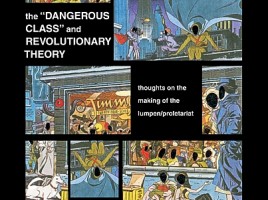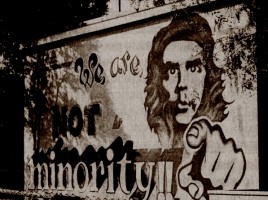
Reading Torkil Lauesen’s “The Global Perspective” (Bromma, 8/18)
The transformation to a neo-colonial world has only begun, but it promises to be as drastic, as disorienting a change as was the original european colonial conquest of the human race. Capitalism is again ripping apart and restructuring the world, and nothing will be the same. Not race, not nation, …






